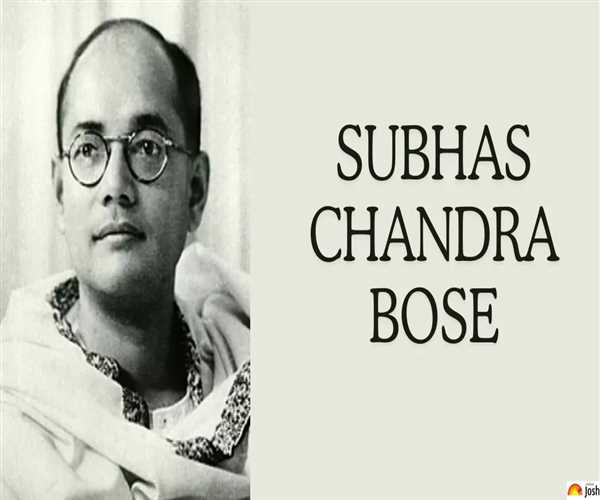
27-Jun-2024 , Updated on 6/28/2024 1:54:36 AM
Why did Gandhi force Subhas Chandra Bose to withdraw from the president's post in Indian National Co
The Congress Party, despite its current struggles, has deep roots in India's history, dating back to the pre-independence era. One notable episode that highlights the internal conflicts within the party involves Subhas Chandra Bose, who served as Congress President in 1938.
Subhas Chandra Bose's presidency marked a period of intense political drama. In 1939, during the Congress convention in Jabalpur, Madhya Pradesh, tensions between Mahatma Gandhi and Bose reached a boiling point. Gandhi, who preferred a more conservative approach to the freedom struggle, saw Bose's radical ideas and growing influence as a threat to his own leadership and the party's unity.
The conflict began when Bose announced his candidacy for a second term as Congress president. This move was seen as a direct challenge to Gandhi's authority, which had significant support within the Congress Working Committee. Gandhi initially backed Maulana Abul Kalam Azad for the presidency, believing that a Muslim president would promote communal harmony amidst rising tensions between Hindus and Muslims.
However, Azad, recognizing Bose's popularity and the futility of contesting against him, withdrew his candidacy. Gandhi then shifted his support to another candidate, Patabhi Sitaramaiah, urging him to run against Bose. The election that followed was fiercely contested, with Bose ultimately winning with 1580 votes against Sitaramaiah's 1377. Despite this victory, Bose faced immense resistance from Gandhi's loyalists within the Congress Working Committee, who publicly questioned his leadership abilities.
Gandhi's dislike for Bose's leadership was clear. He saw Bose's approach as too radical and feared it would divide the party. To avoid further escalation, Gandhi exerted intense pressure on Bose to step down. Gandhi's strategic maneuvering and influence within the party eventually led to Bose's resignation from the Congress presidency and the party itself.
This internal strife culminated in Bose forming the Forward Bloc, signaling his departure from Congress and highlighting the deep ideological rifts within the party. Gandhi's insistence on Bose's withdrawal was driven by his desire to maintain control over the party's direction and ensure a unified approach to India's freedom struggle, even if it meant sidelining a charismatic and influential leader like Bose.
In retrospect, Gandhi's actions were aimed at preserving his own leadership and ensuring the party's cohesion, contrasting sharply with Bose's more militant stance. This episode remains a significant chapter in the history of the Indian National Congress, reflecting the complexities and challenges of leadership within a movement striving for national liberation.

Student
I am a content writter !
Comments
Join Our Newsletter
Subscribe to our newsletter to receive emails about new views posts, releases and updates.
Copyright 2010 - 2026 MindStick Software Pvt. Ltd. All Rights Reserved Privacy Policy | Terms & Conditions | Cookie Policy